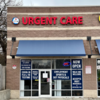Urgent care accepting
Cigna health insurance
Own a clinic? Add your location.
Help patients book appointments with you on Solv. It's free!
0 instant-book locations

MinuteClinic Inside CVS Pharmacy, W 5th Ave, Columbus
MinuteClinic Inside CVS Pharmacy

MinuteClinic Inside CVS Pharmacy, N High St, Columbus
MinuteClinic Inside CVS Pharmacy

MinuteClinic Inside CVS Pharmacy, E Main St, Columbus
MinuteClinic Inside CVS Pharmacy

MinuteClinic Inside CVS Pharmacy, S High St, Columbus
MinuteClinic Inside CVS Pharmacy

iMed Urgent Care
iMed Urgent Care

iMed Urgent Care, Grove City
iMed Urgent Care

MinuteClinic Inside CVS Pharmacy, Stringtown Rd, Grove City
MinuteClinic Inside CVS Pharmacy

MinuteClinic Inside CVS Pharmacy, W Henderson Rd, Upper Arlington
MinuteClinic Inside CVS Pharmacy

MinuteClinic Inside CVS Pharmacy, Roberts Rd, Hilliard
MinuteClinic Inside CVS Pharmacy

MinuteClinic Inside CVS Pharmacy, N Stygler Rd, Columbus
MinuteClinic Inside CVS Pharmacy

Scioto Urgent Care
Scioto Urgent Care

MinuteClinic Inside CVS Pharmacy, N High St, Worthington
MinuteClinic Inside CVS Pharmacy

MinuteClinic Inside CVS Pharmacy, London Groveport Rd, Grove City
MinuteClinic Inside CVS Pharmacy

MinuteClinic Inside CVS Pharmacy, S Cleveland Ave, Westerville
MinuteClinic Inside CVS Pharmacy

MinuteClinic Inside CVS Pharmacy, Sawmill Rd, Dublin
MinuteClinic Inside CVS Pharmacy

MinuteClinic Inside CVS Pharmacy, S Old State Rd, Lewis Center
MinuteClinic Inside CVS Pharmacy

MinuteClinic Inside CVS Pharmacy, E Main St, Reynoldsburg
MinuteClinic Inside CVS Pharmacy

MinuteClinic Inside CVS Pharmacy, Hill Rd, Pickerington
MinuteClinic Inside CVS Pharmacy

MinuteClinic Inside CVS Pharmacy, Seldom Seen Rd, Powell
MinuteClinic Inside CVS Pharmacy

MinuteClinic Inside CVS Pharmacy, E Broad St, Pataskala
MinuteClinic Inside CVS Pharmacy
Own a clinic? Add your location.
Help patients book appointments with you on Solv. It's free!
Cigna Urgent Care
Cigna is a global health service company partnering with over one million healthcare facilities and providers on a mission to improve the health, well-being, and peace of mind for healthcare consumers. With more than 74,000 employees, no matter what type of health predicament you’re in, they can help you find a practical solution that treats your diagnosis, injury or illness.
For non-life-threatening injuries and illnesses, Cigna is likely to recommend urgent care as an option, assuming you can’t get into your primary care provider. Urgent care centers give consumers access to high-quality healthcare providers with walk-in and same-day convenience. Not to mention, an urgent care could save you hundreds (or even thousands) of dollars compared to an ER.
Of course, if you are experiencing any life-threatening symptoms, you should call 911 or visit your closest emergency room immediately. While this is usually the most expensive healthcare option, if your life is on the line, there is really no better venue to be treated. You will also have access to treatment from a variety of different hospital departments and follow up care.
Being covered by Cigna, or any major health insurance carrier, means you do have access to their resources and provider network. For residents and visitors to Arizona, that includes the Cigna Medical Group, a multi-specialty network with more than 20 locations focused on everything from primary care to diabetes, and of course, urgent care.
Cigna Urgent Care FAQs
Is urgent care covered by health insurance?
Yes, your insurance should cover a visit to an urgent care clinic. However, the cost of each form of urgent care can vary considerably, so be sure that you are well versed on what kind of policy you have with your insurance provider. Patients often receive phone and on-site approval of their insurance prior to treatment, yet weeks later, they’re left with expensive examination bills. Just like hospitals and emergency rooms, insurance coverage must be processed through a partnership network before a co-pay can be determined. If you are worried about the cost or insurance acceptance, before you book an appointment at any walk-in clinic or urgent care center, contact your insurance provider to find out if they participate in the same healthcare network. Don’t wait until you require urgent care to ask an insurance provider about coverage options.
Does Cigna cover urgent care?
Yes, Cigna does cover the cost of urgent care visits. Coverage often varies, based on the specific policy you have, so be sure to consult your plan details, including what kind of deductible or copay you can expect. Each form of urgent care comes with its own set of fees, and each service you have performed at a doctor can cause your out of pocket to vary. Follow the links above to find out more about your options.
Do retail clinics take Cigna health insurance?
Retail clinics (also called walk-in or convenient care clinics) offer consumers an easy location to receive walk-in clinic treatment, typically inside shopping centers. Your health insurance coverage is determined in the same way that it would if you visited a separate urgent care clinic facility. Although Cigna provides healthcare insurance coverage for thousands of walk-in clinic locations, you may need to check if the location is connected within our healthcare network. If the site hasn’t been added to our systems, you may pay the full amount of your co-pay or treatment bill.
What is my urgent care co-pay with Cigna?
Co-payments for urgent care visits are determined by whether the location is covered within our healthcare network. Each of our covered providers' treatment quality and co-payment coverage varies. For regular visits to locations that are connected within our healthcare network, the average service charges may be around $20-$40 in co-payment. You can contact Cigna directly to learn more about your coverage options, and find a walk-in clinic location that we cover.
Can I use Medicare at urgent care?
Most urgent care clinics accept Medicare or Medigap plans to pay for visit treatments. Part B of your policy covers the medical insurance portion, which amounts to around 80% of the total co-pay. For those with a Medigap plan, the secondary insurance portion pays what is determined by your policy provisions. If the urgent care center denies your Medicare coverage after a visit, they may request you to sign an agreement not to bill Medicare. Opt-out providers can’t bill Medicare for follow up appointments, so they may refer you to your primary care provider for additional treatment.
How much does urgent care cost without insurance?
The total amount of a co-pay for a walk-in clinic depends on the treatment provided during the visit. After a doctor conducts your exam and goes over your medical history, they may decide to administer additional services (such as x-rays, IVs, medication, or shots). Without any type of insurance, you can expect to pay anywhere from $70-$125 per routine visit. Any additional service fees may significantly increase your bill. If you visit an urgent care center without insurance, you are required to pay the full amount for your visit before you leave.
Urgent care vs ER vs walk-in clinic
Urgent care centers and walk-in clinics take care of consumers with non-life-threatening illnesses or injuries (such as fevers, mild asthma, cold or flu symptoms, minor cuts or burns, urinary tract infections, headaches, and joint or muscle pain). They’re staffed with nurses, physician assistants, and/or doctors who can use labs or x-rays to diagnose underlying diseases or conditions. Emergency rooms handle life-threatening symptoms, illnesses, or injuries (such as uncontrolled bleeding, severe cuts or burns, asthma attacks, seizures, dizziness, heart attacks, strokes, and more.) Doctors and nurses are available inside hospital emergency rooms 24 hours a day, 365 days a year. If you have a life-threatening emergency, please call 911, or visit your nearest emergency room.

Updated on Jul 25, 2025
Related Searches
DOT Exam
Ear Wax Removal
Sports Physicals
A1C Test
Allergy Testing
Basic Metabolic Panel
Blood Test
CMP Test
Cholesterol Test
Diabetes Test
Diagnostic Test
Drug Test
Glucose Test
Hepatitis test
Mono Test
RSV Test
STD Testing
Strep Test
TB Test
Urinalysis
Vitamin D Test
Aetna Urgent Care
Blue Cross Blue Shield Urgent Care
Cigna Urgent Care
COVID-19
Flu
United Health Urgent Care
» All servicesFind Cigna urgent care
Nearby cities
Everyday Healthcare, Simplified
Expert advice to help you live your best life




![Care Continuum: Where to Go When Your Sick or Injured [INFOGRAPHIC]](https://ucl-cdn-prod.thirdparty.solvhealth.com/dir/media/W1siZiIsIjIwMTQvMDYvMDUvMTJfNDNfMzhfODI1X3doZXJlX3RvX2dvLmpwZyJdLFsicCIsInRodW1iIiwiMzAweCJdXQ?sha=a4b9959de5e927ba)




